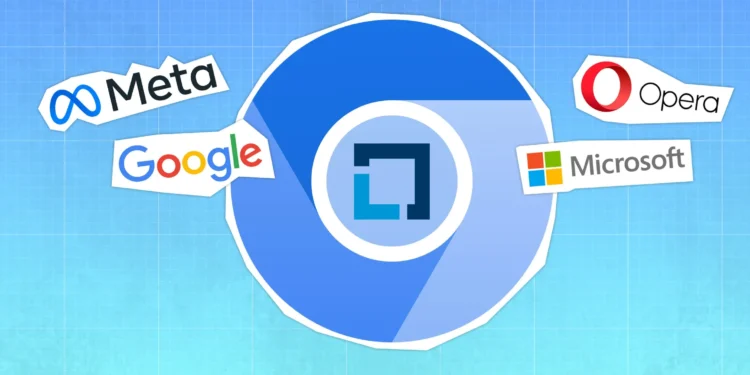Microsoft has decisively pivoted its Edge browser to a Chromium base, a move originally met with skepticism yet now hailed as a visionary shift. This transition not only enhanced Edge’s web compatibility but also streamlined updates, aligning it more closely with Chrome, the browser giant. The shift has ostensibly reduced the workload on developers by standardizing compatibility efforts and has broadened the usability of Chrome extensions across Microsoft’s platform.
This coalition was announced alongside the launch of the Linux Foundation’s initiative, which aims to provide a neutral ground for open-source collaboration, fostering innovation and development within the Chromium community. Microsoft’s blog post underlined the significance of this initiative, stating it as a milestone in collaborative technology development.

Bridging the Gap: Tech Giants and Open Source
The “Supporters of Chromium-Based Browsers” initiative is not just a funding mechanism but a strategic move to deepen ties within the tech community. It aims to enhance existing projects and spark new innovations under the Linux Foundation’s stewardship. Meghan Perez, VP of Microsoft Edge, emphasized the importance of this partnership: “Microsoft is pleased to join this initiative which will help drive collaboration within the Chromium ecosystem. This aligns with our commitment to the web platform through meaningful and positive contributions and partnerships with the community to achieve the best outcome for everyone using the web.”
This collaboration has already seen significant milestones. Since adopting the Chromium base, Edge has introduced several new features, significantly enhancing user experience:
- AI Integration: Over 10 billion AI-powered interactions with Copilot.
- Content Delivery: 800 million articles, stories, and updates delivered via MSN.
- Security Measures: Blocking more than 1.4 billion phishing, malware, and scam attacks.
- Data Protection: Safeguarding over 7.3 billion passwords each month.
- Performance Enhancements: Saving over 7 trillion megabytes of PC memory with features like Sleeping Tabs.
Despite these advancements, Edge still commands a modest slice of the browser market share, stable at around 5%. However, its continued development and integration of cutting-edge technologies position it as a competitive and viable alternative to more established browsers.

The alliance between Microsoft, Google, and Meta under the “Supporters of Chromium-Based Browsers” heralds a new chapter in technology where cooperation can coexist with competition. This partnership not only aims to elevate the Chromium-based browser experience but also sets a precedent for future collaborations that could reshape the technology landscape. As these tech giants continue to align their efforts, the potential for innovation and advancement in web technologies seems boundless, promising a better, faster, and more secure internet for all.










